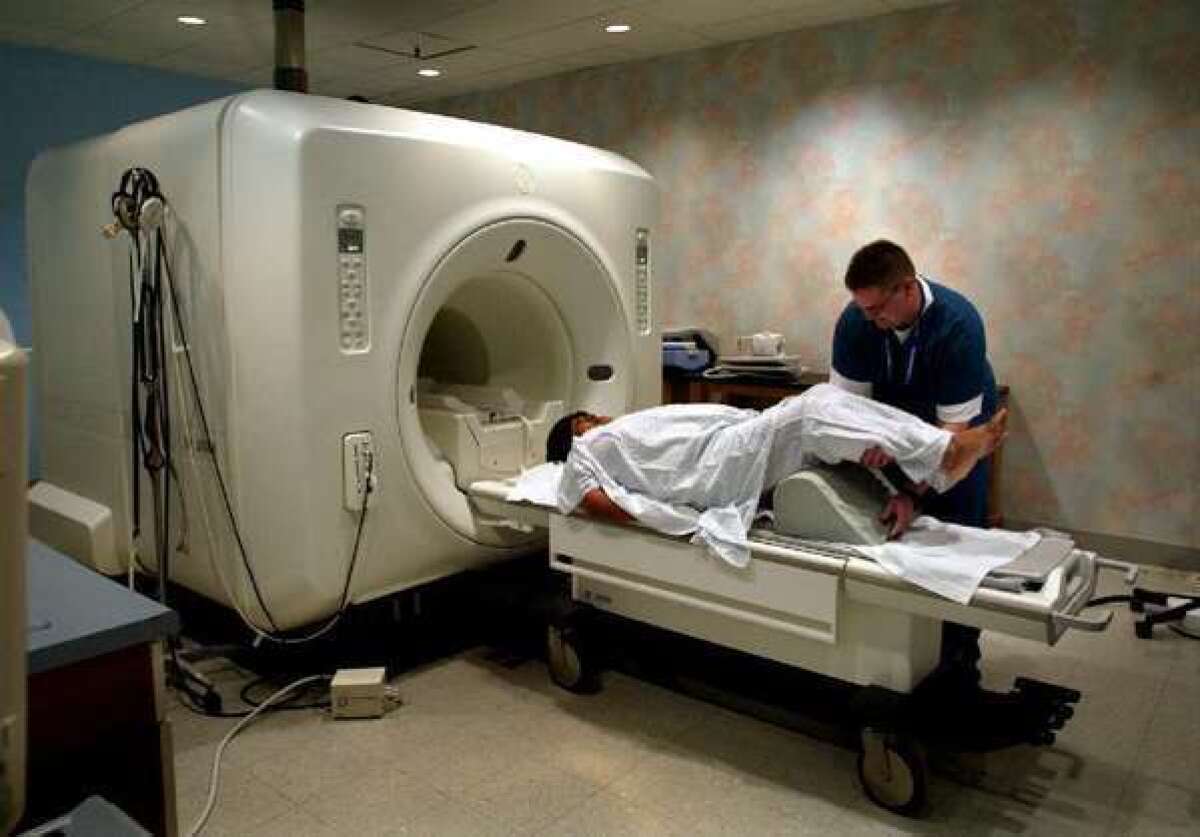In many patients, diagnostic testing isn’t reassuring after all

- Share via
A lot of us find our way to the doctor with strange aches and pains that are very, very unlikely to be caused by serious illness -- headaches, back pains or stomach troubles, to name a few. To be on the safe side, physicians will often order tests to rule out the scary stuff and, the thinking goes, provide reassurance.
But a recent examination of 14 randomized, controlled trials found that ordering diagnostic tests for people who have a low risk of serious illness didn’t really reassure patients or resolve their anxiety and symptoms.
The University of Edinburgh’s Alexandra Rolfe and the University of Aberdeen’s Dr. Christopher Burton reported the findings of their meta-analysis (abstract here) online Monday in the journal JAMA Internal Medicine. Reviewing results collected from 3,828 patients who had been randomized into groups that would receive tests (such as endoscopy for stomach discomfort and scans for back pain) and groups who would not, they discovered that patients who did receive tests did not display significant reduction in concern over being ill, either over the short or long term. Anxiety and symptoms were not significantly different between the two groups.
While follow-up visits did decline somewhat among patients who received testing, Rolfe and Burton determined that the number of patients who would have to be tested to avoid a single doctor visit later on varied from 16 to 26, depending on the symptom. In an invited commentary on the research, also published online in JAMA Internal Medicine, Dr. Kurt Kroenke, an investigator at the Regenstrief Institute, a research organization affiliated with Indiana University in Indianapolis, calculated that amount of testing would run from $4,000 to $16,000, conservatively.
Rolfe and Burton concluded in their report that “physicians overestimate the value of testing when the probability of serious disease is low” and urged doctors and healthcare organizations to “limit tests to those that influence clinical management.” In his commentary, however, Kroenke noted that this might be hard to do. Diagnostic tests are reimbursed at higher rates than consultations that involve collecting patient histories and conducting in-office exams, even though the latter have higher “diagnostic yield” than tests.
“Just as we are still trying to reduce patient expectations for antibiotics induced by a generation of overprescribing, reversing the tide of testing will be a slow process,” he wrote.







